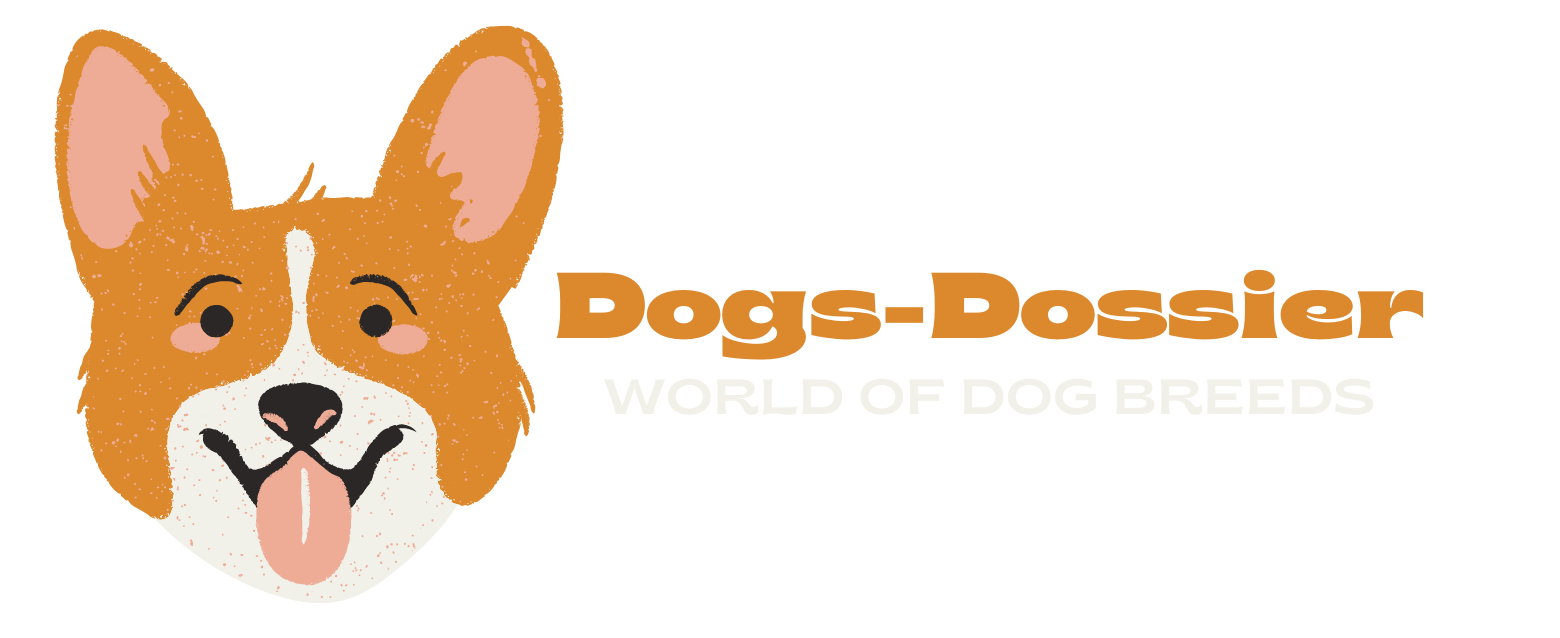Why Do French Bulldogs Fart So Much? Understanding the Causes and Solutions
French Bulldogs, beloved for their affectionate nature and charming personality, are notorious for their flatulence.
In this article, we’ll explore the reasons behind their frequent gas passing and provide practical solutions to alleviate this common issue.

Understanding the French Bulldog Digestive System
The French Bulldog’s digestive system is characterized by its sensitivity, prone to gastrointestinal issues due to their brachycephalic (flat-faced) anatomy. This unique feature predisposes them to excessive air swallowing while eating, leading to increased gas production.
Additionally, their delicate stomachs make them susceptible to dietary intolerances and allergies, further exacerbating digestive upset. Owners should carefully monitor their Frenchie’s diet, opting for high-quality, easily digestible foods to minimize gastrointestinal distress.
Slow-feeding solutions can help regulate their eating pace, reducing air intake and promoting smoother digestion. Proactive management of their digestive health is essential to ensure the well-being and comfort of French Bulldogs.
Regular veterinary check-ups and dietary adjustments can help alleviate digestive issues and promote overall gastrointestinal health.
Why Do French Bulldogs Fart So Much?
French Bulldogs fart frequently due to their sensitive digestive systems and brachycephalic anatomy, which leads to excessive air swallowing while eating.
Dietary factors, such as high-carbohydrate and fermentable foods, can exacerbate gas production. Additionally, low-quality diets and lack of exercise contribute to gastrointestinal upset and flatulence in Frenchies.
Proactive management strategies, including dietary adjustments and regular exercise, can help minimize this issue and improve digestive health.
Sensitive Digestive System
French Bulldogs possess a sensitive digestive system, prone to gastrointestinal upset and flatulence. Their delicate stomachs make them susceptible to dietary intolerances and allergies, leading to digestive discomfort.
Owners should be cautious when introducing new foods, as abrupt dietary changes can trigger digestive issues. Opting for high-quality, easily digestible dog food and avoiding table scraps can help minimize gastrointestinal distress in French Bulldogs.
Additionally, incorporating slow feeding solutions can regulate their eating pace and reduce the risk of bloating and gas buildup.

Brachycephalic Anatomy
The brachycephalic anatomy of French Bulldogs refers to their flat-faced structure, characteristic of the breed. This unique facial feature predisposes them to certain health issues, including respiratory and digestive problems.
Specifically, their shortened muzzle can lead to difficulty breathing and excessive air swallowing while eating. As a result, French Bulldogs may experience increased flatulence due to the ingestion of excess air.
Owners should be mindful of their pet’s brachycephalic anatomy and take appropriate measures to address any associated health concerns.
Dietary Factors
Dietary factors play a crucial role in the digestive health of French Bulldogs. Certain foods, such as high-carbohydrate and fermentable ingredients, can exacerbate gastrointestinal issues and lead to increased flatulence.
Additionally, abrupt changes in diet or the introduction of new foods may disrupt their sensitive digestive systems, causing discomfort and digestive upset. Owners should prioritize high-quality, easily digestible dog food and avoid feeding table scraps or expired food to minimize gastrointestinal distress.
Monitoring their Frenchie’s diet and making appropriate dietary adjustments can help promote optimal digestive health and reduce the risk of flatulence.
Low-Quality Diet
Feeding a low-quality diet to French Bulldogs can have detrimental effects on their digestive health. Such diets are often high in carbohydrates, artificial additives, and fillers that can disrupt their sensitive stomachs and lead to gastrointestinal upset.
Additionally, low-quality dog food may lack essential nutrients and contain inferior ingredients, further exacerbating digestive issues. Regular consumption of such diets can increase the risk of flatulence, bloating, and discomfort in French Bulldogs.
To promote optimal health and reduce the likelihood of digestive problems, owners should prioritize feeding their Frenchie high-quality, nutritionally balanced dog food formulated for sensitive stomachs.
Lack of Exercise
The lack of exercise can contribute to digestive problems, including flatulence, in French Bulldogs. Physical activity plays a crucial role in maintaining healthy digestion by stimulating bowel movements and promoting proper gut motility.
Without sufficient exercise, French Bulldogs may experience sluggish digestion, leading to an accumulation of gas in the digestive tract. Additionally, a sedentary lifestyle can contribute to obesity, which further exacerbates digestive issues and increases the risk of flatulence.
To prevent these problems, owners should ensure their Frenchie receives regular exercise through daily walks, play sessions, and interactive activities to support optimal digestive health.

How to Prevent Excessive Farting in French Bulldogs
Dietary Adjustments
Dietary adjustments are essential for managing flatulence in French Bulldogs. Owners should consider transitioning to high-quality, easily digestible dog food formulated for sensitive stomachs.
Avoiding table scraps and foods high in carbohydrates or fermentable ingredients can help minimize gastrointestinal upset and reduce the risk of flatulence.
Additionally, incorporating raw or minimally processed diets may alleviate digestive issues in some French Bulldogs. Monitoring their Frenchie’s diet closely and making appropriate adjustments can promote optimal digestive health and reduce flatulence.
Consulting with a veterinarian for personalized dietary recommendations is recommended for addressing specific digestive concerns.
Slow Feeding Solutions
Slow feeding solutions are effective strategies for reducing flatulence in French Bulldogs. These specially designed bowls or feeders are engineered to slow down mealtime, discouraging rapid eating and excessive air swallowing.
By promoting slower consumption, slow feeding solutions help prevent bloating and gas buildup in the digestive tract. Additionally, these devices encourage dogs to chew their food more thoroughly, aiding in digestion and reducing the risk of gastrointestinal upset.
Owners can introduce slow feeder bowls as part of their Frenchie’s meal routine to support optimal digestive health and minimize flatulence.
Supplements and Probiotics
Supplements and probiotics can be beneficial additions to a French Bulldog’s diet to help reduce flatulence. Anti-fart supplements and probiotics contain ingredients that promote healthy digestion and gut flora, which can aid in reducing gas production and improving overall gastrointestinal health.
Before introducing supplements or probiotics, it’s essential for owners to consult with their veterinarian to ensure they are appropriate for their Frenchie’s specific needs. A veterinarian can provide guidance on selecting high-quality supplements and probiotics and recommend appropriate dosages based on the individual dog’s health status.
Integrating supplements and probiotics into a comprehensive approach to managing flatulence can help support digestive wellness in French Bulldogs.
Regular Exercise
Regular exercise is crucial for managing flatulence in French Bulldogs. Physical activity helps stimulate bowel movements and promote healthy digestion, reducing the likelihood of gas buildup in the digestive tract.
Additionally, exercise helps maintain a healthy weight, which can prevent obesity-related digestive issues and minimize flatulence. Owners should ensure their Frenchie receives daily exercise through walks, playtime, and interactive activities tailored to their breed’s energy level and physical capabilities.
Incorporating regular exercise into their routine not only supports optimal digestive health but also contributes to their overall well-being and quality of life.
Things to Avoid
Low-Quality Food
Feeding low-quality food to French Bulldogs can contribute to digestive problems, including flatulence. Such diets often contain fillers, artificial additives, and low-quality ingredients that are difficult for dogs to digest.
Additionally, these foods may lack essential nutrients, leading to nutritional deficiencies and gastrointestinal upset. Regular consumption of low-quality food can disrupt the balance of bacteria in the gut, exacerbating flatulence and digestive discomfort.
To promote optimal digestive health and minimize flatulence, owners should prioritize high-quality, nutritionally balanced diets formulated for sensitive stomachs. Avoiding low-quality food and opting for premium, easily digestible options can help alleviate digestive issues in French Bulldogs.

Highly-Fermentable Foods
Highly fermentable foods can exacerbate flatulence in French Bulldogs. Certain ingredients, such as beans, broccoli, peas, cauliflower, soy, and dairy products, are known to produce excessive gas during digestion.
When consumed in large quantities, these foods can lead to bloating, discomfort, and increased flatulence in dogs. Owners should limit the intake of highly fermentable foods in their Frenchie’s diet to minimize gastrointestinal upset and reduce the risk of flatulence.
Instead, opt for easily digestible and less gas-producing ingredients to promote optimal digestive health in French Bulldogs.
When to Seek Veterinary Advice?
It’s essential to seek veterinary advice if your French Bulldog’s flatulence persists despite dietary adjustments and lifestyle changes.
Additionally, if flatulence is accompanied by other concerning symptoms such as vomiting, diarrhea, lethargy, or changes in appetite or behavior, prompt veterinary attention is warranted. These symptoms may indicate underlying health issues that require medical intervention.
Furthermore, if your Frenchie experiences sudden or severe flatulence, or if there are any changes in the frequency or odor of their flatulence, consulting with a veterinarian is recommended.
Early detection and treatment of underlying health conditions can help alleviate discomfort and promote optimal digestive health in French Bulldogs.
FAQs: French Bulldogs
Why do French Bulldogs fart so much?
French Bulldogs have sensitive digestive systems, and their flat-faced anatomy predisposes them to swallow excessive air while eating. Certain dietary factors, such as high-carbohydrate and fermentable foods, can also contribute to increased gas production.
Can dietary adjustments help reduce flatulence in French Bulldogs?
Yes, transitioning to high-quality, easily digestible dog food and avoiding table scraps can minimize gastrointestinal upset and reduce flatulence. Consider incorporating raw or minimally processed diets and consulting with your veterinarian about appropriate dietary changes.
Are there any specific foods to avoid to prevent excessive farting in French Bulldogs?
Yes, foods high in carbohydrates, such as grains and processed ingredients, should be limited. Additionally, highly fermentable foods like beans, broccoli, and dairy products can exacerbate flatulence and should be avoided.
How can slow feeding solutions help manage flatulence in French Bulldogs?
Slow feeder bowls discourage rapid eating and excessive air swallowing, promoting slower consumption and minimizing bloating and gas production.
Are supplements and probiotics effective in reducing flatulence in French Bulldogs?
Consult with your veterinarian about incorporating anti-fart supplements and probiotics into your Frenchie’s diet. These can aid in digestion and promote gut health, potentially reducing gas production.
Conclusion
In conclusion, proactive management strategies play a crucial role in mitigating flatulence in French Bulldogs, ensuring a better quality of life for both the pet and owner.
By implementing dietary adjustments, incorporating regular exercise, and seeking veterinary advice when necessary, owners can address underlying issues contributing to flatulence and promote optimal digestive health.
Additionally, avoiding highly fermentable foods and low-quality diets can help minimize gas production and reduce discomfort for the Frenchie. With careful attention and proactive measures, owners can enhance their pet’s well-being and enjoy a harmonious relationship free from the challenges of excessive flatulence.





